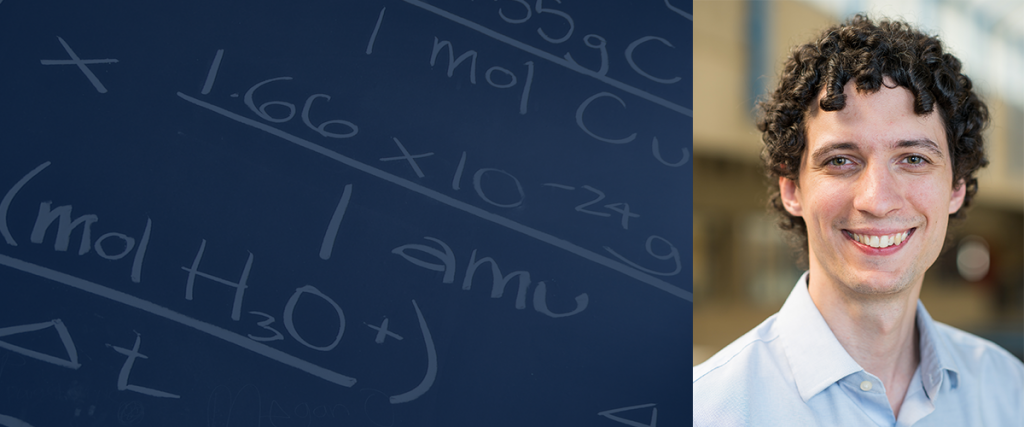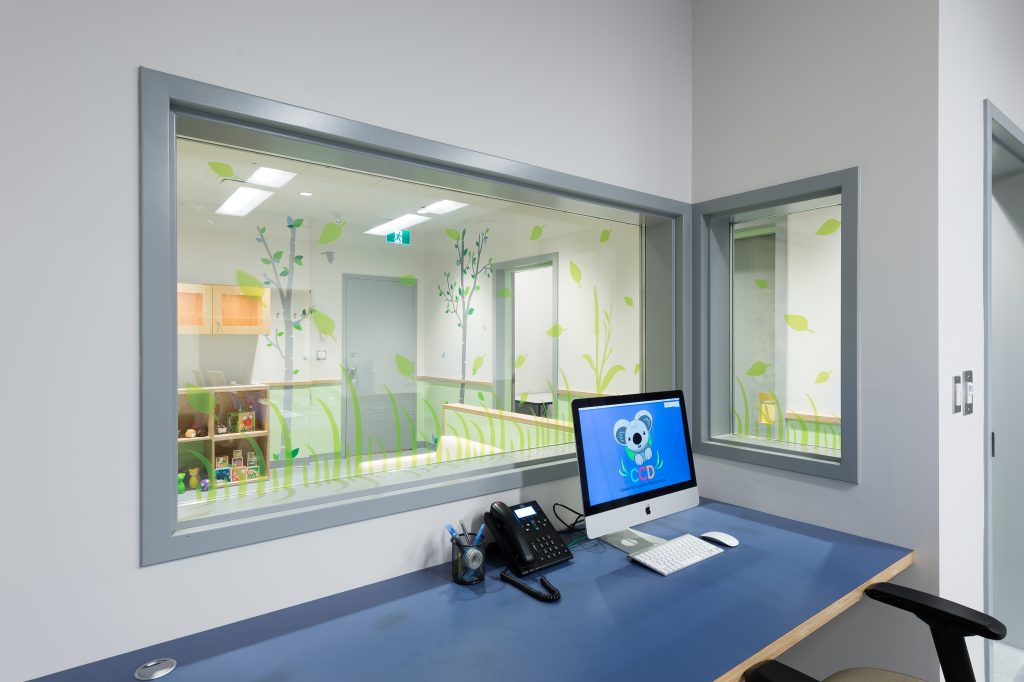

Dr. Darko Odic’s research intersects cognitive development, philosophy, psychophysics, and psycholinguistics.
Why do children learn some things before others? What makes learning easy—and what makes it difficult? And how can we improve children’s ability to universally learn higher cognitive concepts, such as mathematics and science?
Dr. Darko Odic, psychology professor and director of the Centre for Cognitive Development, hopes to answer these questions. From investigating how children learn about the world around them to understanding how language enriches quantitative reasoning, Odic’s research intersects cognitive development, philosophy, psychophysics, and psycholinguistics.
In this Q&A with Dr. Odic, we learn about the research he’s excited about, the research taking place at the lab, and the research team’s philosophy.
What’s the lab’s main research focus?
Children are born with a rich set of expectations about the world, from understanding that objects fall when unsupported, to intuitively reasoning about number, time, and space. Our lab investigates how these early intuitions both enrich and constrict children’s learning and behaviour. For example, our work shows that children’s existing intuitions about quantity align with the meanings of certain words they are trying to learn – e.g., the word “more” – allowing them to learn these words very quickly. In other situations, however, their intuitions run contrary to what they are trying to learn – children’s imprecise gut sense of number, for example, makes learning the meaning of precise number words like “fifteen” difficult. Similarly, their gut sense of number makes certain mathematical concepts easy to grasp (e.g., addition), while making others very difficult (e.g., fractions). More recently, we have been exploring how children intuitively think about certainty – the probability of something being true or false – and the role this plays in self-directed learning and determining how they interact with others.


The Centre for Cognitive Development
At the core of your research is a paradox: if children intuitively think about number, time, and space, why do they struggle to learn or talk about these concepts?
The key to developmental psychology is finding ways to get children to demonstrate their knowledge in ways that they are able to, not in ways that we as adults want them to. Asking a 4-year-old whether they are “sure” or “not sure” of something is a recipe for disaster: it requires them to understand what these words mean and how to map them to their own complex and multifaceted sense of certainty (something even us adults struggle with). But if we place a 4-year-old child in a simple game where they can ask for help whenever they can’t solve a problem they will clearly show us that they know when they are or are not certain of their answer, and that they simply could not communicate it verbally. Our work shows that babies and young children are able to reason about number, time, and space: they just sometimes have difficulty talking about these concepts because it requires them to map precise words to imprecise intuitions.
What do these research topics tell us more broadly about the mind?
In the end, we believe that all of these different topics and methods will converge on the central question we are interested in: how do minds work and change over development? Each of the topics we study in the lab is an attempt to tell us something bigger about these questions. For example, while every person in the world has a gut sense of number, different languages speak about number in very different ways. We can thus use number perception as a platform to understand both the variety and the universality of human thought.
Can you describe your approach to exploring these intersecting areas of child development?
Our approach is inherently interdisciplinary: we combine the methods and insights from as many domains as possible, including psychology, linguistics, computer science, philosophy, and mathematical modelling. To do this, everyone in the lab learns broadly about these various methods and approaches, and we always attempt to mix and match from these toolboxes freely. A student in our lab is as likely to learn about doing longitudinal studies as they are to learn computational modelling.
Can you tell us about any new research that you are particularly excited about?
Our lab has become very interested in how children perceive certainty in the world: that is, how they decide what is or is not probable. My graduate student Carolyn Baer and I have developed a novel task for measuring individual differences in children’s ability to assign certainty: we find that while some children have a very finely tuned sense of certainty, others are very imprecise. We are now actively studying what skills this sense of certainty contributes to, including in how children perceive others as reliable or unreliable. In one study, for example, we have shown that children are sensitive to the certainty of their partner in a simple cooperative game, and 7-9 year-old children will take the hardest trials for themselves to spare their uncertain partner from attempting them – even when the children themselves cannot actually figure out the hard trials!
What are other members of the lab working on?
Carolyn, our Ph.D. candidate, is interested in the fundamental processes that help children learn about the world around them and act as social agents. She is currently working on a series of studies exploring how children’s sense of certainty contributes to their own learning (e.g., how a child knows when they are certain so that they can stop learning) and to learning from others (e.g., how children evaluate others as reliable or unreliable).
Denitza, our MA student, just joined the lab in September and is interested in how language learning shapes children’s cognition, if at all. We’re currently starting a project investigating how particular word and sentential meanings provide a kind of algorithmic instructions to perception and cognition, directing them to attend to and execute computations relevant to only a subset of a visual display.
Our lab also actively recruits Directed Studies students, who always collaborate with me to develop brand new lines of work. One of our students – Hannah – is working on a study exploring whether children put too much trust and certainty into technological devices, such as iPads. Another – Catalina – is working on developing a training protocol that could accelerate children’s learning of number words. Over the summer, our lab also holds an annual Summer Internship, inviting advanced undergraduate students from all over US and Canada to work full-time with us for 8-10 weeks on a research project.
Can you describe the personality of the lab?
We keep everything relaxed, open, and welcoming. Our fundamental philosophy is to allow all members to contribute intellectually, to grow personally, and to feel nurtured and welcome in all aspects of the lab. We want everyone to feel as equal as possible and make sure nobody feels above or below another person, and to share all our ideas and skills with others so that they can be as independent as possible as quickly as possible.
What does the lab do for fun?
We have a whole whiteboard dedicated to brainstorming fun lab activities (current top choices for the semester: aquarium, cycling, and laser tag). I also can neither confirm nor deny that there are hundreds of toys in our waiting room that we sometimes play with.


The waiting room at the Centre for Cognitive Development


